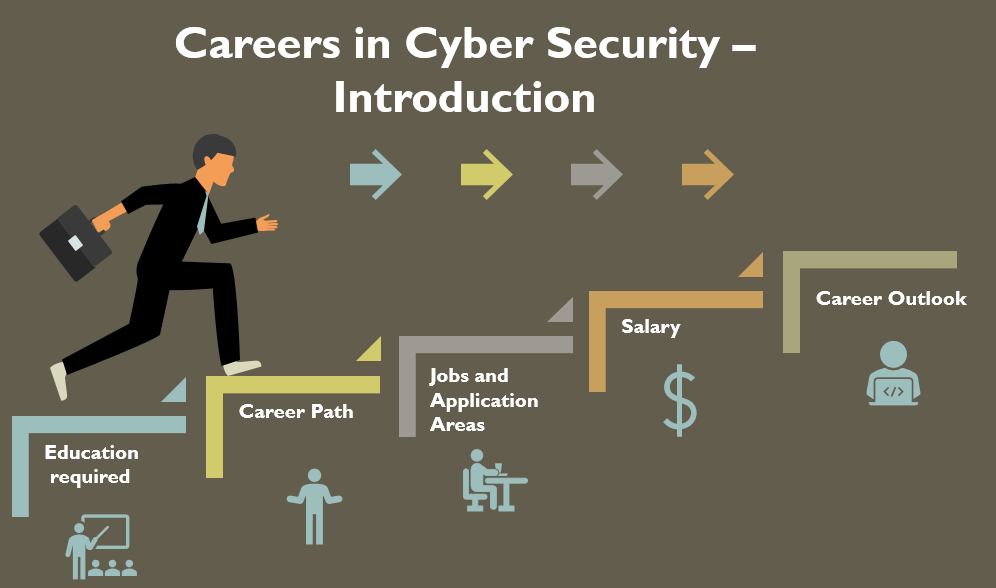
The field of Information Security Analysis offers excellent job prospects due to the increasing dependence on digital systems and the rising number of cyber threats. Organizations across industries prioritize cybersecurity to protect sensitive data and critical systems, driving strong demand for skilled security analysts.
1. Overview of the Role
Information Security Analysts protect an organization’s computer systems, networks, and data from cyberattacks, breaches, and unauthorized access. Key responsibilities include:
- Monitoring and assessing security risks.
- Implementing and updating security measures.
- Investigating and responding to security incidents.
- Ensuring compliance with industry regulations and standards.
2. Demand for Information Security Analysts
- Cyber Threat Landscape: Increasing cyberattacks (e.g., ransomware, phishing, DDoS) create a critical need for security professionals.
- Digital Transformation: Growing reliance on cloud computing, IoT, and remote work increases vulnerabilities.
- Regulations and Compliance: Organizations must adhere to standards like GDPR, HIPAA, and ISO 27001, requiring specialized expertise.
According to industry reports (e.g., Bureau of Labor Statistics or LinkedIn data), job growth in this field is projected to be much faster than the average for all occupations, often exceeding 30% growth over the next decade.
3. Sectors Hiring Information Security Analysts
- Finance and Banking: High-risk sectors require robust cybersecurity to protect financial data and prevent fraud.
- Healthcare: Safeguarding patient records and compliance with privacy laws (e.g., HIPAA).
- Government and Defense: National security organizations require expertise to counteract cyber espionage and attacks.
- Retail and E-commerce: Securing payment systems and protecting consumer data.
- Technology Companies: Developing and maintaining secure software, platforms, and services.
- Energy and Utilities: Protecting critical infrastructure from cyber threats.
4. Key Skills for Information Security Analysts
- Technical Skills:
- Knowledge of firewalls, intrusion detection/prevention systems (IDS/IPS), and antivirus software.
- Proficiency in security tools like SIEM (e.g., Splunk, IBM QRadar).
- Familiarity with encryption, VPNs, and access control mechanisms.
- Experience with network security, ethical hacking, and vulnerability assessments.
- Soft Skills:
- Analytical thinking to identify vulnerabilities and assess risks.
- Communication skills to explain security issues to non-technical stakeholders.
- Problem-solving abilities for incident response and mitigation.
5. Certifications to Enhance Career Prospects
- Entry-Level:
- CompTIA Security+
- Certified Ethical Hacker (CEH)
- Intermediate-Level:
- Certified Information Systems Security Professional (CISSP)
- Certified Information Security Manager (CISM)
- GIAC Security Essentials (GSEC)
- Specialized Certifications:
- Offensive Security Certified Professional (OSCP)
- Certified Cloud Security Professional (CCSP)
6. Salary Expectations
- Entry-Level: $60,000–$80,000/year.
- Mid-Level: $80,000–$120,000/year.
- Senior-Level: $120,000–$180,000/year or more, depending on industry and specialization.
7. Emerging Trends Shaping Job Prospects
- AI and Machine Learning in Cybersecurity: Analysts use AI tools for threat detection and response automation.
- Zero Trust Security Models: Growing adoption in enterprises requires experts to design and implement these systems.
- Cloud Security: As organizations migrate to the cloud, specialists are needed to secure cloud-based assets.
- IoT Security: Protecting smart devices and networks from increasing vulnerabilities.
- Cybersecurity for Remote Work: Addressing risks associated with distributed workforces.
8. Challenges in the Field
- Skill Shortages: A global talent gap in cybersecurity means analysts often have heavy workloads.
- Constant Learning: Rapidly evolving threats require ongoing education and training.
- Pressure and Stress: High stakes in protecting sensitive data and responding to incidents can be demanding.
9. How to Prepare for a Career in Information Security Analysis
- Education: A degree in Cybersecurity, Computer Science, or a related field is beneficial.
- Hands-On Experience: Internships, entry-level IT roles, or participation in cybersecurity competitions.
- Certifications: Demonstrate expertise and commitment to the field.
- Networking: Join professional organizations like ISACA or (ISC)² to access resources and job opportunities.
10. Long-Term Outlook
The information security field offers strong job security and growth potential, with roles becoming increasingly specialized. Senior-level positions may evolve into roles like Chief Information Security Officer (CISO) or Cybersecurity Architect, offering higher responsibilities and salaries.
With businesses, governments, and individuals prioritizing cybersecurity, Information Security Analysts will remain indispensable in protecting digital assets and infrastructure.




